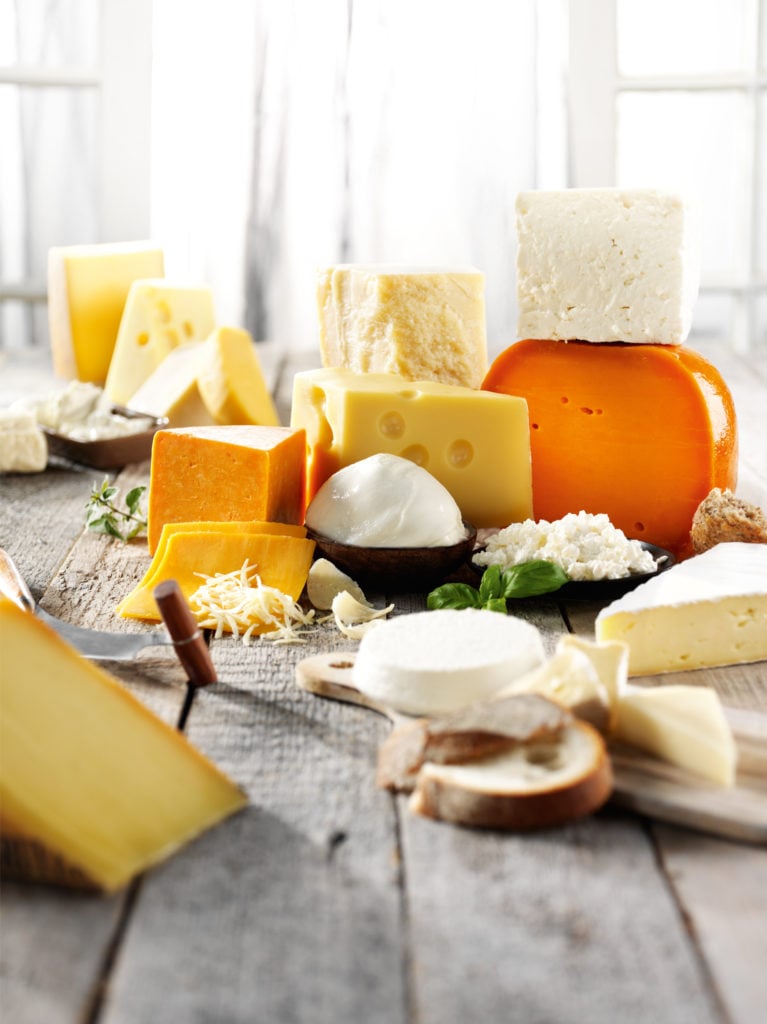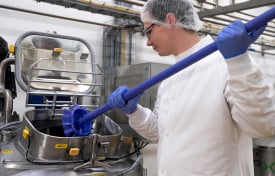To craft cheeses with precise flavors and textures tailored to specific markets, cheesemakers must carefully select cultures, adjuncts, and coagulants. The choice of coagulant is particularly crucial for cheeses like pasta filata, cheddar, and continental varieties, where texture, sliceability, and shredability significantly impact productivity and profitability. Selecting a coagulant enzyme with low proteolytic activity, specifically targeting k-casein, enhances texture, moisture distribution, and sliceability, leading to reduced waste during slicing. Coagulants also play a pivotal role in flavor development by supporting cheese ripening and preventing the hydrolysis of β-caseins, avoiding bitter off-flavors. dsm-firmenich Ingredients, through products like Delvo®Cheese starter cultures and Delvo®ADD adjuncts, provides cheesemakers with the tools to optimize texture and taste, meeting the demands of diverse markets. Maxiren® and Fromase® from dsm-firmenich cater to consumer preferences for vegetarian, convenient, and flavorful products, offering fermentation-produced chymosin and microbial coagulants to achieve optimal cheese texture and worry-free whey processing.
The Right Coagulant for the Right Texture
For pasta filata, cheddar and continental cheeses, texture, sliceability and shredability are key characteristics, as they can have important consequences on productivity and profitability. These textural traits are heavily influenced by proteolytic activity and a homogenous moisture distribution in the cheese.
Adding a coagulant with a low proteolytic activity—such as a coagulant enzyme that is highly specific towards k-casein—to the production process, leads to a cheese with improved texture and moisture distribution, as well as better sliceability. This can result in 15% less waste during slicing. Improved sliceability also allows cheesemakers to increase the water content of a cheese by up to 2%, further increasing the quality of the final product. The economic gain achieved by improving the yield over the entire production run will impact the cost-effectiveness of the cheese production plant significantly.
Flavor Depends on Choice of Coagulant
Coagulant enzymes also play a key role in the flavor development of cheese. First, they support cheese ripening by cutting the α-caseins to increase accessibility of the enzymes of the lactic acid bacteria; a process that aids the development of flavor. Secondly, specificity in cutting casein also helps to improve taste. This is because the right coagulant prevents the hydrolysis of β-caseins during ripening, avoiding the development of a bitter off-flavor taste.
The Role of Cultures in Flavor Development
The type and dosage of the culture used during the cheese development process is important in determining the final taste of a cheese. Cheese cultures have two functionalities; their acidifying properties, for instance, decrease the pH scale in a product and thereby affect the taste and texture of the cheese. Cultures also help to further develop taste components by breaking down available sugars (such as lactose and galactose) and proteins, which impacts taste, texture and therefore the characteristics of the final cheese. Both aspects are closely connected.


Optimize Texture and Taste
dsm-firmenich provides cultures and coagulants to help cheesemakers produce cheeses with just the right texture and flavor to appeal to their very specific markets. DSM's Delvo®Cheese starter cultures help dairy manufacturers optimize cheese production while improving cheese flavor, texture and quality, while its Delvo®ADD adjuncts enable cheese producers to achieve distinctive and delicious flavor and/or texture profiles.
Click here to read more about the Delvo®Cheese starter culture options
Click here to read more about the Delvo®ADD adjunct options
Consumers are increasingly looking for vegetarian, convenient, and great-tasting products. dsm-firmenich's Maxiren® and Fromase® provide the proven performance to answer these needs. Maxiren® is a fermentation-produced chymosin, while Fromase® is a high-quality microbial coagulant (endopeptidase) preparation. Part of the Maxiren® range, Maxiren® XDS has the highest specificity in the coagulation process and lowest proteolytic activity during ripening, resulting in an optimal cheese texture. It also has the highest thermolability, which guarantees worry-free whey processing.
Whether customers produce continental, mozzarella, cheddar, cottage, white or Swiss cheeses, Nelson-Jameson will work with dsm-firmenich to gladly provide a sample of the appropriate starter culture, adjunct, or coagulant. Contact our Ingredients Specialists for more information at (800) 826-8302.
Shop our selection of cheese coagulants.







